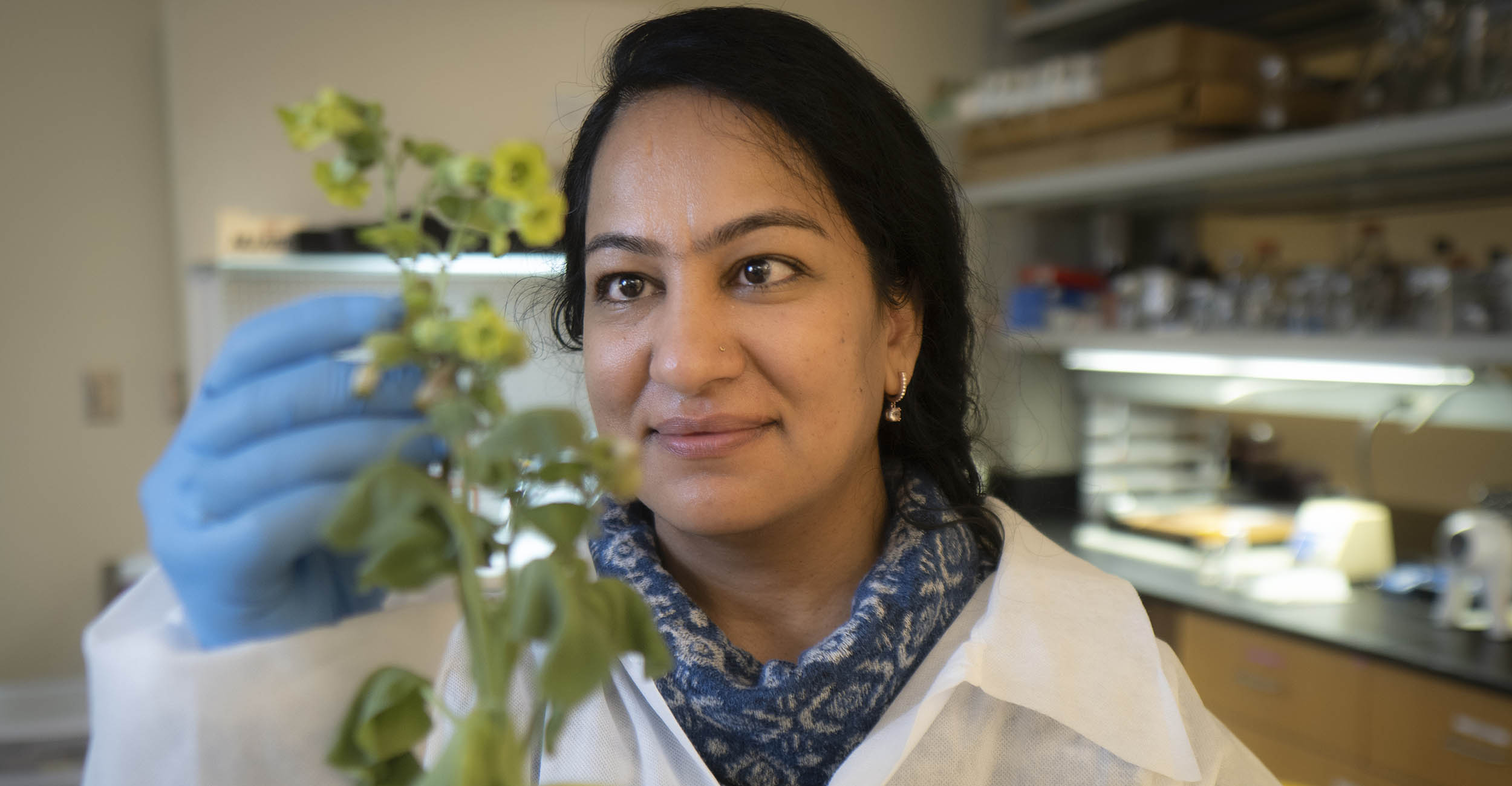
OSU institute receives $1M grant to streamline plant disease testing
Monday, March 28, 2022
Media Contact: Alisa Boswell-Gore | Agricultural Communications Services | 405-744-7115 | alisa.gore@okstate.edu
Oklahoma State University Institute of Biosecurity and Microbial Forensics scientists are heading a national project geared toward creating more efficient diagnostic practices for plant pathogens.
The $1 million project — funded by the USDA’s National Institute of Food and Agriculture — aims to safeguard U.S. production systems, ensure safe and beneficial trade, and ensure food security and environmental protection.
Plant pathologists nationwide are already developing diagnostic tools for various plant pathogens, said Kitty Cardwell, director of IBMF and professor of plant pathology. However, the information from such research is dispersed across the nation and housed in several places.
“We want to coordinate efforts and make sure researchers have the resources they need in one place instead of having this information scattered,” Cardwell said. "We want to create this ecosystem of scientists and resources, so when a scientist needs to develop a plant disease diagnostic test, they will have an easy place to find other researchers working on the same organism and can access the reference standards and genetic data they need.”
The Diagnostic Assay Validation Network (DAVN) will house information about researchers, pathogen genetic data and diagnostic tools developed for plant pathogens. It will catalog and categorize the information in a way that allows plant pathologists to find the information quickly and efficiently.
“If there is an outbreak of an unknown plant disease, developing a verified test that works properly can take years, so we hope by having this database, scientists can use these resources to create a pathogen test more quickly,” Cardwell said.
Poonam Sharma, a researcher and assistant professor in molecular biology working on DAVN, said getting an incorrect diagnosis for a plant pathogen or not having a test for a plant pathogen can have a negative impact on agribusiness.
“U.S. agricultural biosecurity depends upon reliable diagnostic testing. If you don’t have a validated test, it is difficult to diagnose accurately to control the disease, and it becomes a risk for food security,” Sharma said. “DAVN will coordinate, standardize and harmonize the plant disease diagnostic and validation research in the U.S.”
Cardwell said the National Center for Biotechnology Information currently houses DNA and RNA information on plant pathogens, but it is a huge database containing sequences for every kind of living organism and searching for information specific to plant pathogens can be time consuming.
“The research done by our team will pull out specific pathogen DNA markers that could be used in diagnostic tests,” she said. “The DAVN will give us a framework for a network of scientists and the resources they need. The researchers can then continue to build it and add to it.”
The American Phytopathological Society has agreed to house the database. This will help ensure the project’s success rate, Cardwell said, because APS is a nationally recognized association that plant pathologists regularly access for information.
Other countries have already developed such networks — the Valitest in Europe, for example. Cardwell said European scientists worked with the IBMF, the U.S. Department of Agriculture and other U.S. entities on the initial stages of this project, so the nations can have similar language and understanding with pathogen test performance.
“It is important that we have a similar understanding of how tests are developed and what’s needed to make a test accurate, because that helps trade due to the fact that we understand and agree with each other about what tests we are using,” Cardwell said. “We want to have the same understanding as a means of promoting safe and beneficial trade and international collaboration.”
Cardwell provides more information about plant health and the damage caused by pathogens in her National Plant Health Champion address online at the USDA-Animal and Plant Health Inspection Service website.
OSU Ag Research is Oklahoma's premier research and technology development agency in agriculture, natural resources and the life sciences.
This material is based upon work supported by the National Institute of Food and Agriculture of the U.S. Department of Agriculture under award number 2022-68013-36537 for $985,739. Any opinions, findings, conclusions, or recommendations expressed in this publication are those of the author(s) and do not necessarily reflect the view of the U.S. Department of Agriculture.
